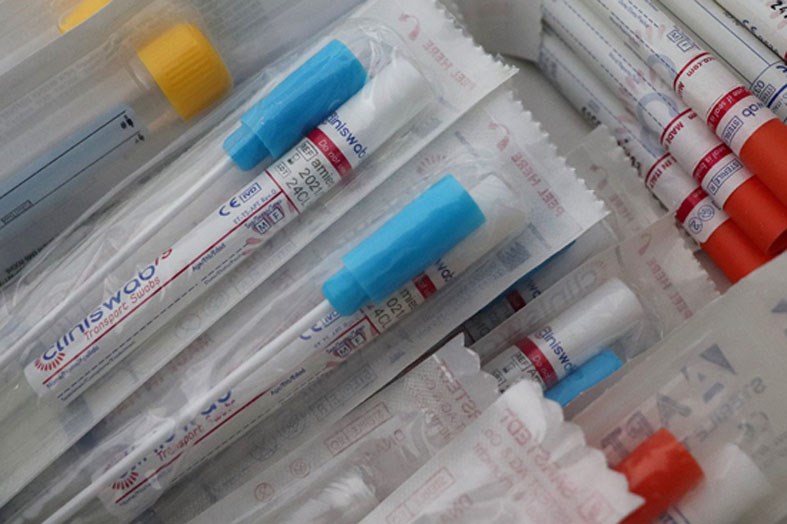In a news conference on Monday, Manitoba Premier Brian Pallister acknowledged the importance of rapid testing for health care workers and to help with contact tracing. Rapid testing units have arrived and Manitoba has a strategic plan to immediately distribute and begin rapid COVID-19 testing, to help protect Manitobans at greatest risk.
Premier Brian Pallister announced Tuesday, “Now that our initial shipment of these rapid testing units has arrived, we are taking strategic action to put these resources where they can benefit our public health response the most. This plan will support some of Manitoba’s more vulnerable communities and ensure our province is well positioned to respond to the challenges of this virus.”
Manitoba has just received 13 rapid test devices, called the Abbott ID NOW, along with enough supplies for more than 4,000 tests. Based on public health advice, most devices will be located in remote communities, including Swan River, The Pas, Churchill, Thompson, Lynn Lake, Gillam and Flin Flon, where delays due to transportation issues, weather or other factors could affect access to traditional testing and a timely public health response. These communities also have existing lab infrastructure, which is needed for rapid tests.
Two devices will be provided to St. Boniface Hospital to respond to the current COVID-19 outbreak in this facility and one will help Manitoba officials evaluate how best to use these tests to help protect Manitobans. The remaining units will be deployed by the province as they become available in response to future outbreaks or other emerging needs.
Testing will begin once health-care providers and other key partners have received the necessary training. Rapid tests are done with a nasal swab and can only be administered by a medical professional or trained operator in a laboratory or other medical setting.
Rapid tests cannot replace traditional COVID-19 testing in all circumstances because they can only be used if a person has symptoms. While it provides almost immediate results, a rapid test is less accurate. As false negatives are more common, all rapid tests still must be confirmed by traditional testing.
The province has also received 87,000 PanBio antigen tests, which would be used as a screening test, not a diagnostic test. The use of antigen-based screening tests is still being validated by Manitoba labs in partnership with labs across the country, including the National Microbiology Laboratory, to determine their accuracy. These findings will inform Manitoba’s decisions on how the PanBio test will be used and, at present, it cannot displace conventional testing methods.
Further information will be shared with health-care providers and Manitobans as soon as possible, the premier said, as Manitoba government acts to ensure timely access to care.
For more information on COVID-19 in Manitoba, visit www.manitoba




